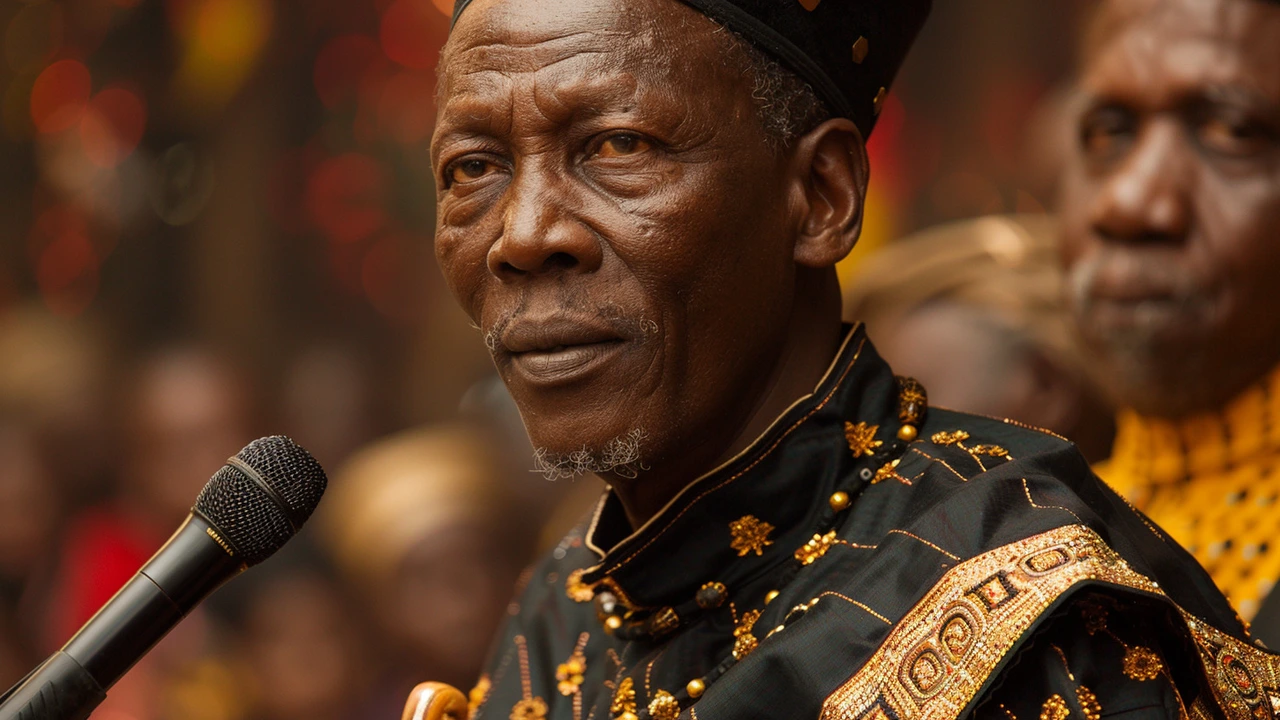
Unexpected Developments in KwaZulu-Natal Coalition Talks
In recent weeks, the political landscape in KwaZulu-Natal, South Africa, has been fraught with dramatic twists and turns. Initial expectations pointed towards a coalition government composed of the African National Congress (ANC), Inkatha Freedom Party (IFP), and the Democratic Alliance (DA) ruling the province. However, surprising maneuvers have drastically altered the course of these coalition talks, keeping the region on edge.
The May 29 elections marked a significant shift. The Umkhonto weSizwe Party (MKP), led by former president Jacob Zuma, emerged as the leading party, securing 37 out of 80 seats. The IFP followed with 15 seats, while the ANC garnered 14, the DA 11, the Economic Freedom Fighters (EFF) two, and the National Freedom Party (NFP) one. Initially, it seemed probable that the ANC-IFP-DA coalition would dominate, but the dynamic political landscape brought new developments.
Last-Minute Negotiations and Unexpected Alliances
In a surprising turn, the IFP signaled openness to discussions with the MKP, leading to an ongoing negotiation process. On the eve of a highly anticipated meeting, IFP leader Velenkosini Hlabisa received a letter from the MKP expressing willingness to engage. The discussions seemed poised for progress. However, MKP leadership did not attend the arranged meeting, creating confusion and casting doubt on the future of this potential alliance.
The MKP, countering accusations of non-attendance, claimed that the IFP's demands were a sticking point. Allegedly, the IFP sought control over five critical portfolios, including the premiership. With this stalemate, the IFP remains firm in its stance but continues to keep the door open for future negotiations with the MKP.
Shifts on the National Stage
Amidst the provincial uncertainties, the IFP announced its intent to join the Government of Unity (GNU) led by the ANC on the national front. This decision has sparked criticism from various quarters, notably from the South African Communist Party (SACP) and Congress of South African Trade Unions (Cosatu). Both organizations have labeled the ANC's affiliation with the DA in provinces with hung legislatures, including KwaZulu-Natal, as a 'sell-out', predicting severe voter backlash.
Speculation is rife as to how these shifting alliances will impact not just KwaZulu-Natal but the broader political climate in South Africa. The tension is palpable as the date for the first sitting of the provincial legislature looms.

Leaders Maneuver for Power
Jacob Zuma, a political heavyweight and the leader of the MKP, had a crucial late-stage meeting with Ivan Barnes, the president of the NFP. This meeting revolutionized the coalition landscape as Barnes decided to join forces with the MKP, bolstering their coalition strength. The unexpected alliance has added another layer of complexity to the political machinations, setting the stage for possible realignments before the legislature convenes.
The IFP, despite the no-show from the MKP, reiterates its commitment to future discussions, trying to keep every option on the table. Hlabisa's strategy appears focused on retaining flexibility and leveraging their position to secure key government roles. The IFP's balancing act between pragmatic coalition-building and ambitious portfolio acquisition strikes a careful chord in their quest for influence.

Critics and Controversies
ANC's alliance with the DA has drawn fire from several factions. The SACP and Cosatu have been vocal in their condemnation, terming the partnership a strategic misstep that could alienate the ANC's traditional voter base. They argue that this alignment betrays the core values of the ANC, cautioning that constituents are likely to perceive this as a sell-out to opposition forces, undermining the ANC's credibility and electoral prospects. This controversy highlights the delicate balancing act required in coalition politics.
For the political entities involved, coalition talks are not just about numbers but also about ideologies and future strategies. The ANC finds itself navigating internal and external pressures while attempting to form functioning governments in challenging landscapes. The prospect of a coalition government in KwaZulu-Natal with such diverse components remains both intriguing and fraught with potential conflicts.

Uncertainty Ahead of Legislature Sitting
With the provincial legislature's first session imminent, anticipation runs high on all sides. The political future of KwaZulu-Natal hangs in the balance as negotiations continue behind closed doors. Will the MKP and IFP bridge their differences to form a united front? Can the ANC manage to maintain its influence despite internal and external scrutiny? These are the questions that resonate throughout the political fabric of the region.
Political analysts predict that the next few days will be crucial in determining the contours of KwaZulu-Natal's government. Whichever way the alliances shape up, the undercurrents of power, strategy, and resilience will play a significant role in the outcomes. The unfolding drama promises to be a litmus test for coalition politics in South Africa, potentially setting precedents for future political maneuverings.
As KwaZulu-Natal waits with bated breath, the political actors continue their engagements, each move scrutinized by the public and political commentators alike. It remains to be seen how these negotiations will pan out and what impact they will have on the larger political landscape of the country.
Write a comment